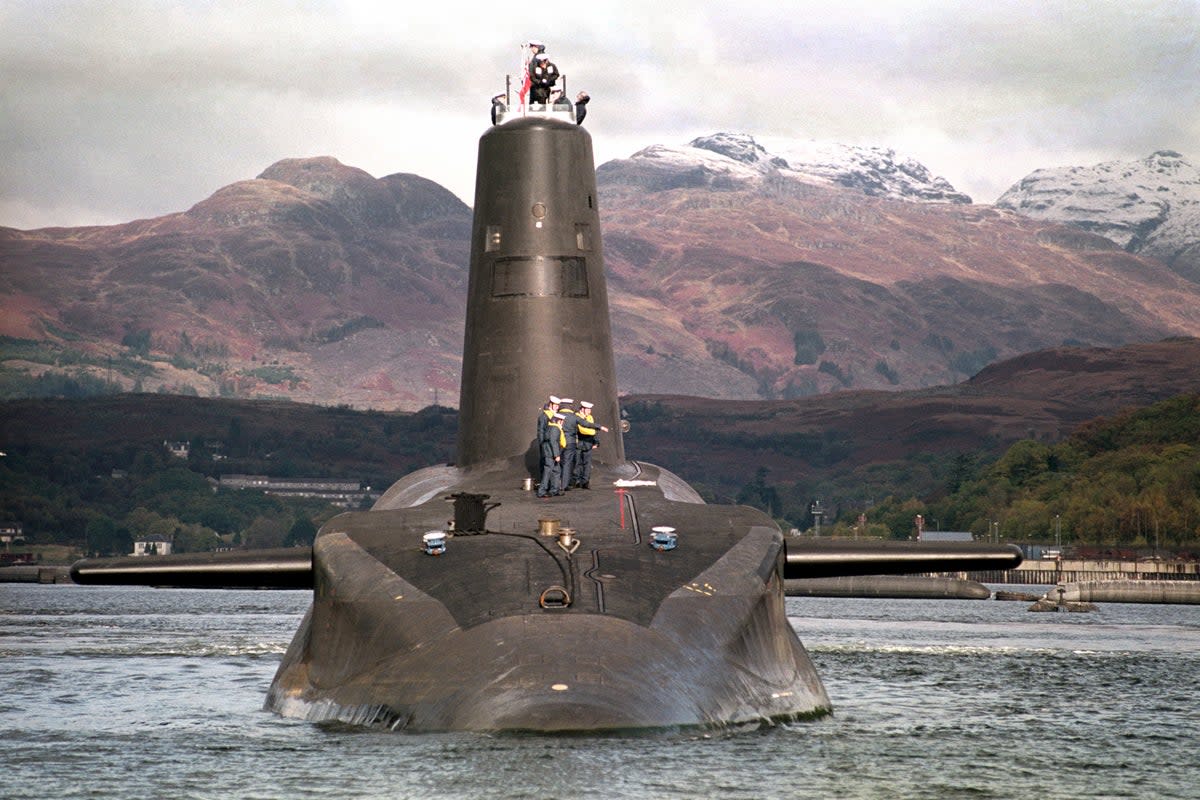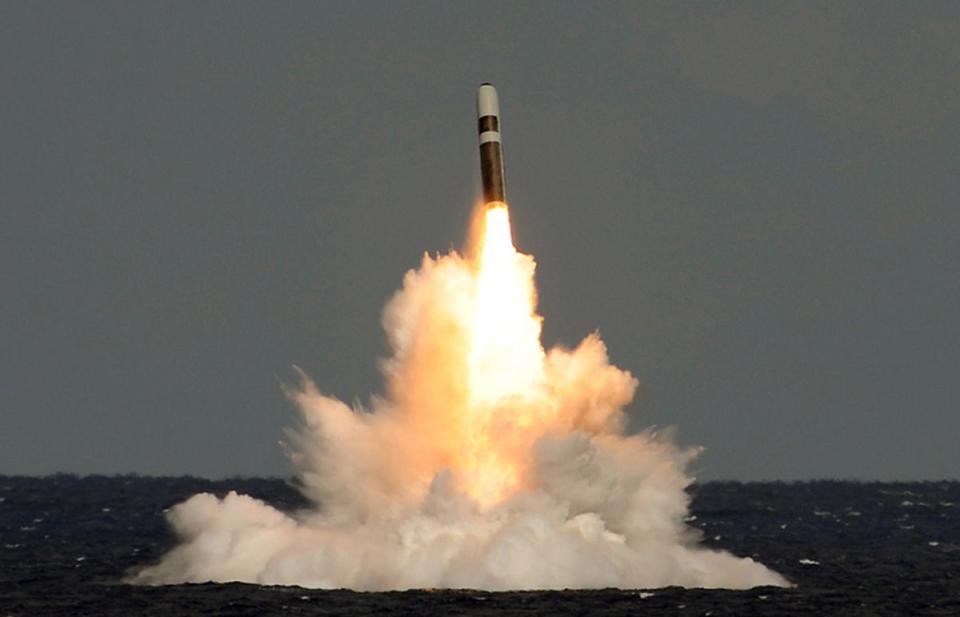Trident nuclear missile fails test launch for second time in a row

A test launch of the UK’s Trident nuclear missile has failed for the second time in a row, crashing back into the ocean almost immediately after being launched, a source has revealed.
The launch was carried out during an exercise off the east coast of Florida on 30 January, with an unarmed Trident 2 missile fired off the nuclear-powered submarine HMS Vanguard, worth an estimated £4 billion.
It was the first UK test launch in eight years after an attempt in 2016 also failed. The UK has not successfully launched a nuclear missile since 2012.
The UK has four nuclear-armed submarines, one of which must continuously be at sea to deter nuclear threats from enemies such as Russia. This test launch was part of the final round of tests for the HMS Vanguard, which has just completed a £500m overhaul, before it returns to patrol service.
But the Ministry of Defence confirmed that an “anomaly” had occured with this latest launch, conducted under test conditions, raising concerns about the effectiveness of Britain’s nuclear deterrent.
“It left the submarine but it just went plop, right next to them,” a source said.
Embarassingly, defence secretary Grant Shapps was on-board the 150 metre vessel at the time of the test launch, his spokesperson confirmed, while First Sea Lord Admiral Sir Ben Key was also reportedly present. Just last month, Mr Shapps said the UK was in a “prewar” phase.

The Trident missile, launched at the end of January, was due to land thousands of miles away at a point in the Atlantic between Brazil and West Africa. It was successfully propelled into the air by compressed gas in the launch pipe, but the missile’s first stage boosters did not ignite and the missile crashed back down into the water.
HMS Vanguard was under the surface, hovering at launch depth, but was not hit by the missile as it plunged back into the Atlantic.
It comes just 10 days after the departure of the UK’s flagship aircraft carrier for a major Nato exercise was postponed after an unspecified “issue” was found in final checks with the starboard propeller coupling.
The Labour party has sought assurances from the Rishi Sunak government in the wake of the incident, calling the missile test failure “concerning”.
The MoD did not describe the test as a failure, but admitted that “during the test an anomaly occurred”. A statement said that the nuclear-capable HMS Vanguard and her crew “have been proven fully capable of operating the UK’s Continuous At-Sea Deterrent, passing all tests during a recent demonstration and shakedown operation (DASO) – a routine test to confirm that the submarine can return to service following deep maintenance work”.
“The test has reaffirmed the effectiveness of the UK’s nuclear deterrent, in which we have absolute confidence,” it added, while stressing that there were “no implications for the reliability of the wider Trident missile systems and stockpile” following the failed launch.
Mr Shapps is expected to present a written ministerial statement on Britain’s nuclear deterrent in the House of Commons on Wednesday, the day’s order paper read.

“Reports of a Trident test failure are concerning. The defence secretary will want to reassure Parliament that this test has no impact on the effectiveness of the UK’s deterrent operations,” John Healey, the shadow defence secretary, said on Wednesday morning.
He added: “Labour’s support for the UK’s nuclear deterrent is total. We recognise the special service of those who’ve maintained our continuous at sea deterrence for over 50 years.”
The last time a Trident nuclear-capable warhead was tested by the Royal Navy, there was a serious malfunction in the system and the missile flew in the wrong direction.
The British nuclear programme has seen opposition in different forms for decades in the UK.
In 2007, a powerful coalition of 100 scientists, lawyers, church leaders, actors, writers and MPs demanded a halt to the rush by Tony Blair towards a replacement for Britain’s Trident nuclear weapon system.
The first test launch of a Trident missile from a British submarine in 1994 was delayed for more than three hours by Greenpeace protesters, who also tried to stop a Trident missile being fired during the first US test in 1989.


